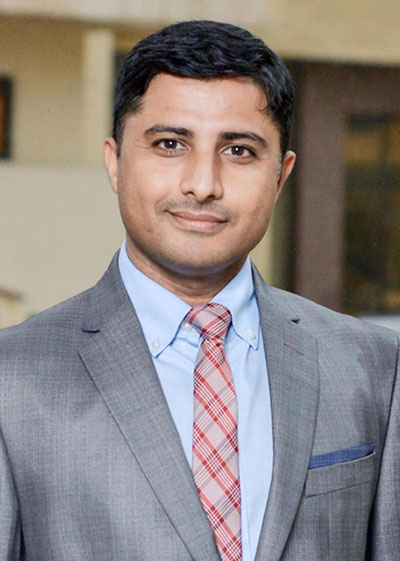
Sajjad Shah
Sajjad Shah, a University of Wyoming Ph.D. student studying computer science, won
the best paper award at the Institute of Electrical and Electronics Engineers Cyber
Awareness and Research Symposium, which took place at the University of North Dakota
at the end of October.
Shah’s paper, titled “Discrete Gaussian Integer Aggregation and Trust-Budget Gating
for Federated Learning in IoT-Enabled CPS,” was selected from among 126 submissions
based on Shah’s innovative approach and successful incorporation of reviewers’ feedback.
When it was recommended, he tested his model on real-world security scenarios. Shah
impressed reviewers through the applied value of his work.
The paper constitutes one layer of a multitiered architecture for indigenous cyber
defense, with the full system laid out in Shah’s dissertation, which he successfully
defended last week. His dissertation focuses on defense-in-depth security for operational
technologies -- in other words, applying quantum principles to cyber defense to improve
the security of “Internet of Things” (IoT)-based cyber-physical systems.
In essence, Shah’s paper describes the use of a particular coding method to privately
and securely combine data from multiple sources and to train machine learning systems
to provide optimal security for the new wave of connected smart devices and physical
systems that integrate these technologies, such as medical devices and procedures,
and automated transportation grids. His solution also uses less memory and fewer computational
resources than many existing cybersecurity approaches, making it especially promising
for resource-constrained and time-sensitive environments.
What started as an exercise in curiosity and an intellectual challenge to address
questions such as “How can you protect the system from attack?” and “Why do people
attack?” has become, for Shah, a commitment to human safety and well-being.
According to the World Economic Forum’s “Global Cybersecurity Outlook 2025” report, 66 percent of organizations expect artificial intelligence (AI) to have the
most significant impact on cybersecurity in the coming year. Yet only 37 percent have
processes in place to assess the security of AI tools before deployment. At the same
time, external analyses, such as those by Cybersecurity Ventures, estimate that global
cybercrime could cost the world around $10.5 trillion annually by 2025, underscoring
how critical it is to develop new security solutions for AI and machine learning-enabled
systems.
Shah is especially concerned about the tremendous impact cyberattacks could have on
human life through the realms of aviation, health care and critical infrastructure.
“A cyberattack at 35,000 feet wouldn’t just cause an IT failure -- it could have severe
consequences for human life,” Shah says.
With his dissertation defense complete and a patent application pending for his work,
Shah is now looking to his future.
“I am looking for a postdoctoral or research-based position where I can take my current
research to the next level by having a complete lab and contributing to academia and
the cyber defense domain,” Shah says.
For their assistance in helping him to reach this step, Shah is grateful to his technical
adviser, Mike Borowczak, a former professor at UW now at the University of Central
Florida, and Ian Walker, doctoral committee chair and head of the UW Department of
Electrical Engineering and Computer Science.
“I was honored and thrilled that our work received the Best Paper Award at IEEE-CARS 2025,” Shah says. “Immense gratitude to my adviser, Mike Borowczak, for his unwavering guidance and to the technical program committee and anonymous reviewers for their thoughtful feedback. A huge thanks to the chairs for an incredible conference experience.”

